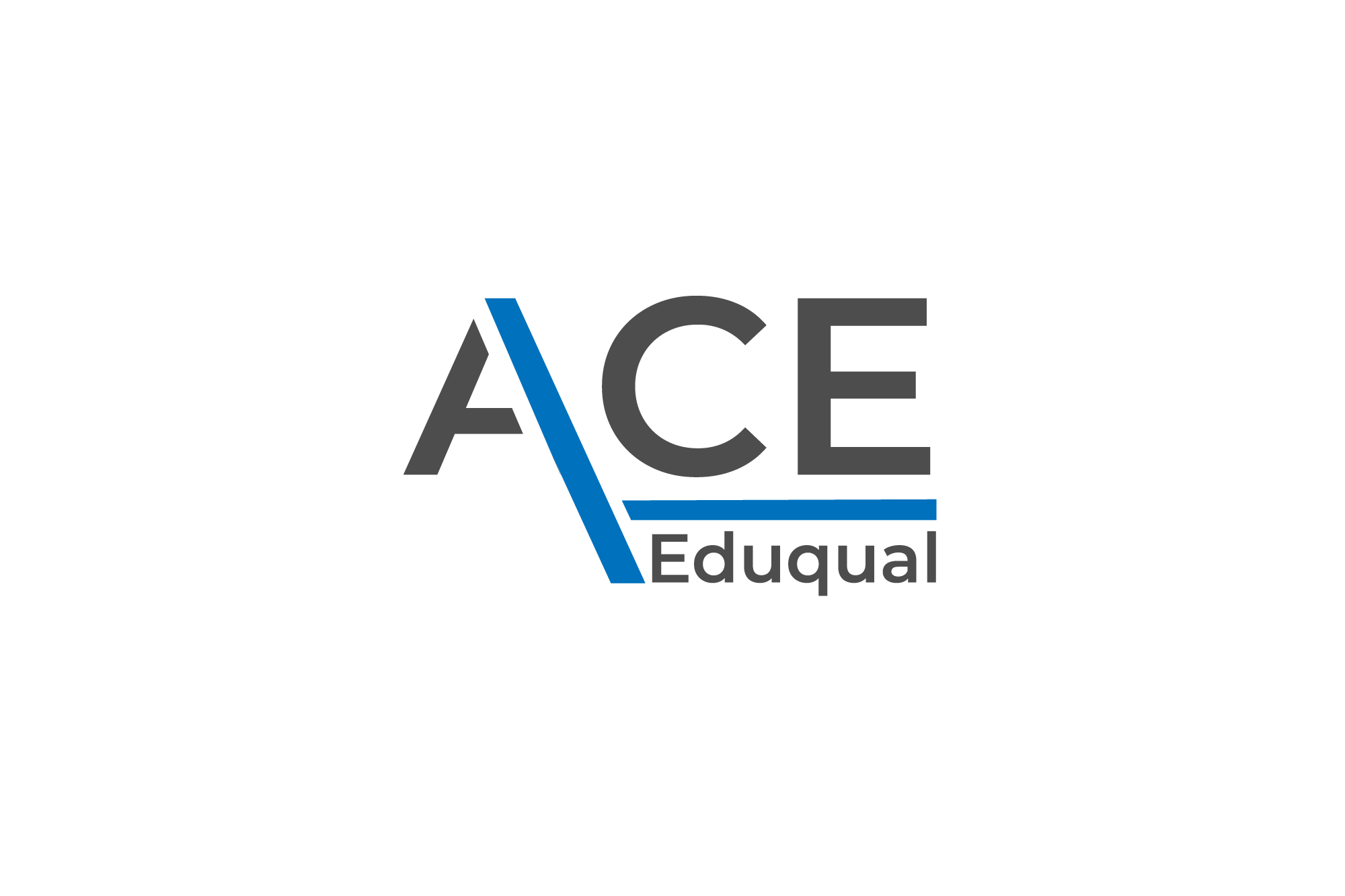Software Engineering

The Software Engineering program offers a comprehensive curriculum designed to equip students with a solid foundation in software development principles and practices. This course focuses on cultivating expertise in designing, building, testing, and maintaining software systems that meet real-world needs. Students will delve into programming languages, algorithms, software architecture, and development methodologies. Through hands-on projects and practical assignments, learners will gain valuable experience in creating software applications, web platforms, and mobile solutions. The curriculum also emphasizes teamwork, communication, and problem-solving skills essential for collaborative software development. Graduates will be well-prepared for diverse career opportunities in the dynamic field of software engineering, ranging from software development roles to project management and innovation-driven positions.
Our Software Engineering qualifications have been designed in collaboration with colleges, higher education institutions, and sector skills councils. They offer a pathway for individuals to progress to university degrees and cover Diploma Level- 3 to 7.
These qualifications provide the flexibility for learners to choose from a variety of optional units at each level. This allows them to specialize in specific areas while also gaining the essential core knowledge necessary for all managers.
- Establish a solid groundwork in software engineering principles, theories, and fundamental concepts.
- Attain a comprehensive understanding of software development methodologies, programming languages, software design patterns, and quality assurance techniques.
- Develop proficiency in applying mathematical and technical knowledge to analyze, design, and address software engineering challenges.
- Gain practical experience through hands-on coding projects and real-world software development simulations.
- Understand the principles of software project management, including team coordination, project planning, and software lifecycle management.
- Acquire skills in software architecture design, including system scalability, performance optimization, and security implementation.
- Explore the nuances of debugging, error handling, and software testing within the software development lifecycle.
- Foster critical thinking, problem-solving, and analytical skills to effectively manage and overcome software engineering challenges.
- Enhance collaboration, communication, and project management abilities through teamwork and interactive coding assignments.
- Develop research proficiency and the capability to apply knowledge for conducting independent studies in specialized areas of software engineering.
After successfully finishing the Software Engineering program, graduates open doors to a wide array of career possibilities spanning diverse industries. Prospective professional paths encompass roles such as software developer, software engineer, systems analyst, web developer, mobile app developer, database administrator, quality assurance engineer, cyber security analyst, and more.
Graduates can delve into job prospects within software development companies, tech startups, IT consulting firms, financial institutions, healthcare organizations, e-commerce companies, research and development centers, and technology-driven enterprises. They also have the option to pursue advanced studies at the postgraduate level or engage in academia and research endeavors.
Course Details

Level 3- National Diploma in Software Engineering
Course Overview:
The Level 3- National Diploma in Software Engineering is designed to provide students with a foundational understanding of software development principles and practices. This course aims to equip learners with essential knowledge about programming languages, algorithms, and software design concepts. Students will gain insights into the software development life cycle, user interface design, and basic web development. The curriculum emphasizes hands-on coding projects and practical exercises to develop students’ programming skills and problem-solving abilities.
Equivalences:
The Level 3- National Diploma in Software Engineering is equivalent to an A-Level qualification in the UK, indicating a standard of learning suitable for entry into higher education or direct employment in the software development sector.
Course Contents:
The course content of the Level 3- National Diploma in Software Engineering typically covers a range of advanced topics. Here are the topics covered:
- Introduction to Programming Concepts
- Fundamentals of Algorithms and Data Structures
- Software Design Principles
- Software Development Life Cycle
- User Interface Design
- Web Development Basics
- Version Control and Collaboration
- Software Testing and Debugging
Assignment Criteria:
The qualification assessment criteria are based on assignments, but in order to pass, the learner must complete all of the unit’s learning requirements. At the completion of each unit, an interview will be held as proof that the work truly belongs to the learner.
Entry Requirements:
The specific entry requirements for the Level 3- National Diploma in Software Engineering may include:
- A minimum age requirement (e.g., 16 years old)
- Completion of O-level/ 10th Standard or equivalent qualifications.
- Completion of a relevant Level 2 qualification in Software Engineering or a related subject.
- English language proficiency, demonstrated through language tests or previous education in an English-speaking environment.
Course Duration:
The qualification has recommended course duration of 1 year.
Note: However the course duration may be increased to meet additional learning needs if required.
Level 4- Extended Diploma in Software Engineering
Course Overview:
The Level 4- Extended Diploma in Software Engineering is a comprehensive program designed to further develop students’ expertise in software development principles and practices. This course aims to deepen the understanding of programming languages, algorithms, software architecture, and advanced web development concepts. Students will engage with topics such as database management, software security, and mobile application development. The curriculum focuses on enhancing coding skills, software design abilities, and problem-solving techniques to prepare learners for higher-level roles in the software engineering industry.
Equivalences:
The Level 4- Extended Diploma in Software Engineering is equivalent to the first year of a bachelor’s degree program in the UK. It represents a higher level of academic and technical proficiency in software development.
Course Contents:
The course content of the Level 4- Extended Diploma in Software Engineering typically covers a range of advanced topics. Here are the topics covered:
- Advanced Programming Concepts and Paradigms
- Software Architecture and Design Patterns
- Database Management Systems
- Advanced Web Development Techniques
- Software Security and Ethics
- Mobile Application Development
- Software Development Tools and Frameworks
- User Experience (UX) Design Principles
- Software Quality Assurance and Testing
- Software Project Management
Assignment Criteria:
The qualification assessment criteria are based on assignments, but in order to pass, the learner must complete all of the unit’s learning requirements. At the completion of each unit, an interview will be held as proof that the work truly belongs to the learner.
Entry Requirements:
The specific entry requirements for the Level 4- Extended Diploma in Software Engineering may include:
- Minimum age requirements (usually 18 years or older).
- Completion of A-level/ 12th Standard or equivalent qualifications.
- Completion of a Level 3 qualification in Software Engineering or a related field may be required by some institutions.
- English language proficiency, demonstrated through language tests or previous education in an English-speaking environment.
Course Duration:
The qualification has recommended course duration of 1 year.
Note: However the course duration may be increased to meet additional learning needs if required.
Level 5- Higher National Diploma in Software Engineering
Course Overview:
The Level 5- Higher National Diploma in Software Engineering is an advanced program that aims to equip students with a comprehensive understanding of advanced software engineering principles and practices. This course delves into topics such as software architecture design, cloud computing, artificial intelligence, and software innovation. Students will explore advanced programming languages, algorithms, and data structures, as well as software optimization techniques. The curriculum focuses on enhancing problem-solving skills, software design capabilities, and critical thinking to prepare learners for senior roles in the software engineering industry.
Equivalences:
The Level 5- Higher National Diploma in Software Engineering is equivalent to the second year of a bachelor’s degree program in the UK. It represents a higher level of academic and technical expertise in software engineering.
Course Contents:
The course content of the Level 5- Higher National Diploma in Software Engineering typically covers a range of advanced topics. Here are the topics covered:
- Advanced Software Architecture and Design Patterns
- Cloud Computing and Distributed Systems
- Artificial Intelligence and Machine Learning in Software Engineering
- Software Innovation and Entrepreneurship
- Advanced Programming Languages and Algorithms
- Software Optimization and Performance Analysis
- Human-Computer Interaction and User-Centered Design
- Data Science and Big Data Analytics
- Software Testing and Quality Assurance
- Software Project Management and Agile Development
Assignment Criteria:
The qualification assessment criteria are based on assignments, but in order to pass, the learner must complete all of the unit’s learning requirements. At the completion of each unit, an interview will be held as proof that the work truly belongs to the learner.
Entry Requirements:
The specific entry requirements for the Level 5- Higher National Diploma in Software Engineering may include:
- Minimum age requirements (usually 18 years or older).
- A Level 4 diploma or year 1 of bachelor’s degree or any equivalent overseas qualification in Software Engineering or a related field.
- Proficiency in mathematics, physics, and relevant engineering principles.
- English language proficiency, demonstrated through language tests or previous education in an English-speaking environment.
Course Duration:
The qualification has recommended course duration of 18 Months.
Note: However the course duration may be increased to meet additional learning needs if required.
Level 6- International Diploma in Software Engineering
Course Overview:
The Level 6- International Diploma in Software Engineering is an advanced and specialized program designed to enhance students’ expertise in software engineering to an advanced level. This course aims to equip learners with advanced technical knowledge and managerial skills required to lead and innovate in the software industry. It covers a wide range of topics, including software architecture, software security, software development methodologies, and emerging technologies. Students will engage in practical projects, software design initiatives, and industry collaborations to gain practical experience and prepare for senior roles in the software engineering sector.
Equivalences:
The Level 6- International Diploma in Software Engineering is equivalent to the final year of a bachelor’s degree program in the UK. It represents a high level of academic and technical proficiency in software engineering.
Course Contents:
The course content of the Level 6- International Diploma in Software Engineering typically covers a range of advanced topics. Here are the topics covered:
- Advanced Software Architecture and Design Principles
- Software Security and Secure Coding Practices
- Software Development Methodologies and Agile Practices
- Emerging Technologies in Software Engineering
- Software Quality Assurance and Testing Strategies
- Software Engineering for Mobile and Web Applications
- Software Project Management and Risk Assessment
- Software Ethics, Legal Issues, and Intellectual Property
- Advanced Data Structures and Algorithms
- Software Innovation and Entrepreneurship
- Software Research and Development Projects
- Industry Placement and Practical Experience
Assignment Criteria:
The qualification assessment criteria are based on assignments, but in order to pass, the learner must complete all of the unit’s learning requirements. At the completion of each unit, an interview will be held as proof that the work truly belongs to the learner.
Entry Requirements:
The course content of the Level 6- International Diploma in Software Engineering may include:
- Minimum age requirements (usually 20 years or older).
- A Level 5 diploma or year 2 of bachelor’s degree or any equivalent overseas qualification in Software Engineering or a related field.
- English language proficiency, demonstrated through language tests or previous education in an English-speaking environment.
Course Duration:
The qualification has recommended course duration of 18 Months.
Note: However the course duration may be increased to meet additional learning needs if required.
Level 7- Post Graduate Diploma in Software Engineering
Course Overview:
The Level 7- Post Graduate Diploma in Software Engineering is an advanced and specialized program designed to empower students with a profound understanding of cutting-edge software engineering practices and methodologies. This course aims to cultivate expertise in software architecture, advanced software development techniques, software innovation, and leadership in the software industry. It covers a comprehensive range of topics, including software design patterns, cloud computing, machine learning for software, and software project management. Students will engage in practical projects, research endeavors, and industry collaborations to enhance their skills and prepare for leadership roles in the software engineering sector.
Equivalences:
The Level 7 Diploma in Software Engineering is equivalent to a postgraduate diploma or master’s degree in the UK. It signifies a high level of academic and technical proficiency in software engineering, equipping graduates for leading positions and advanced research roles in the industry.
Course Contents:
The course content of the Level 7- Post Graduate Diploma in Software Engineering typically covers a range of advanced topics. Here are the topics covered:
- Advanced Software Design Patterns and Architectures
- Cloud Computing and Distributed Systems
- Machine Learning and Artificial Intelligence in Software Engineering
- Software Innovation and Entrepreneurship
- Software Development for Embedded Systems
- Software Testing and Quality Assurance at Scale
- Software Security and Privacy in Complex Systems
- Software Performance Optimization and Scalability
- Advanced Software Project Management and Agile Leadership
- Ethics and Legal Aspects in Software Engineering
- Software Research and Development Projects
- Industry Collaboration and Real-world Application
- Emerging Trends in Software Engineering
- Software Engineering Leadership and Team Management
- Software Engineering Dissertation or Major Project
Assignment Criteria:
The qualification assessment criteria are based on assignments, but in order to pass, the learner must complete all of the unit’s learning requirements. At the completion of each unit, an interview will be held as proof that the work truly belongs to the learner.
Entry Requirements:
The specific entry requirements for the Level 7- Post Graduate Diploma in Software Engineering may include:
- A minimum age requirement (e.g., 22 years old)
- A complete Bachelor’s degree, UK level 6 diploma or an equivalent overseas qualification in Electrical and Electronics Engineering or a related field.
- Proficiency in mathematics, physics, and relevant engineering principles.
- English language proficiency, demonstrated through language tests or previous education in an English-speaking environment.
Course Duration:
The qualification has recommended course duration of 2 years.
Note: However the course duration may be increased to meet additional learning needs if required.

